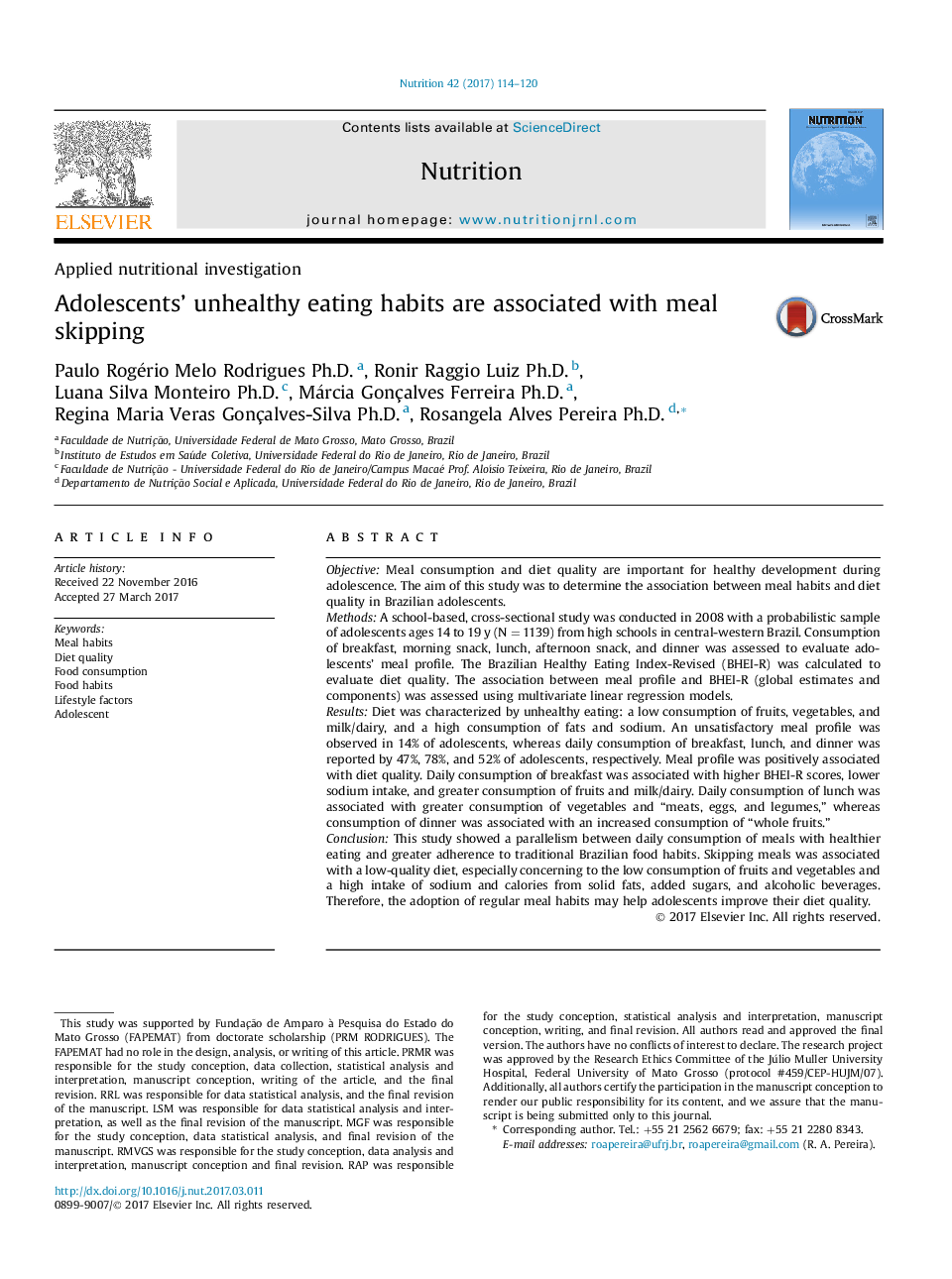| کد مقاله | کد نشریه | سال انتشار | مقاله انگلیسی | نسخه تمام متن |
|---|---|---|---|---|
| 5656867 | 1589656 | 2017 | 8 صفحه PDF | دانلود رایگان |
- Brazilian adolescents had low consumption of fruits and vegetables.
- Brazilian adolescents showed habits of skipping meals, categorized as unsatisfactory meal profile.
- Meal behavior may be a good marker for diet quality.
- Satisfactory meal profile characterized by consumption of at least three main meals a day, was associated with healthy eating habits.
- Adopting regular meal behavior may help adolescents have better diet quality.
ObjectiveMeal consumption and diet quality are important for healthy development during adolescence. The aim of this study was to determine the association between meal habits and diet quality in Brazilian adolescents.MethodsA school-based, cross-sectional study was conducted in 2008 with a probabilistic sample of adolescents ages 14 to 19 y (N = 1139) from high schools in central-western Brazil. Consumption of breakfast, morning snack, lunch, afternoon snack, and dinner was assessed to evaluate adolescents' meal profile. The Brazilian Healthy Eating Index-Revised (BHEI-R) was calculated to evaluate diet quality. The association between meal profile and BHEI-R (global estimates and components) was assessed using multivariate linear regression models.ResultsDiet was characterized by unhealthy eating: a low consumption of fruits, vegetables, and milk/dairy, and a high consumption of fats and sodium. An unsatisfactory meal profile was observed in 14% of adolescents, whereas daily consumption of breakfast, lunch, and dinner was reported by 47%, 78%, and 52% of adolescents, respectively. Meal profile was positively associated with diet quality. Daily consumption of breakfast was associated with higher BHEI-R scores, lower sodium intake, and greater consumption of fruits and milk/dairy. Daily consumption of lunch was associated with greater consumption of vegetables and “meats, eggs, and legumes,” whereas consumption of dinner was associated with an increased consumption of “whole fruits.”ConclusionThis study showed a parallelism between daily consumption of meals with healthier eating and greater adherence to traditional Brazilian food habits. Skipping meals was associated with a low-quality diet, especially concerning to the low consumption of fruits and vegetables and a high intake of sodium and calories from solid fats, added sugars, and alcoholic beverages. Therefore, the adoption of regular meal habits may help adolescents improve their diet quality.
Journal: Nutrition - Volume 42, October 2017, Pages 114-120.e1
